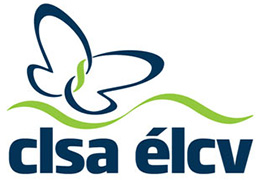Indigenous initiatives and programs at CIHR
 Brain Health and Cognitive Impairment in Aging Research Initiative Brain Health and Cognitive Impairment in Aging Research InitiativeThe Brain Health and Cognitive Impairment in Aging (BHCIA) Research Initiative, led by CIHR's Institute of Aging, supports research across the continuum from the healthy aging brain to cognitive impairment and care for those impacted by dementia, as well as the wellbeing of their caregivers, and includes several funding pools that support Indigenous Health Research. The BHCIA Research Initiative also has a strong focus on mobilization of knowledge for impactful uptake of research outcomes with an emphasis on health equity and Indigenous Rights. |
Canadian Consortium on Neurodegeneration in Aging (CCNA) In addition, CCNA Phase III Research teams include international collaborative Indigenous Health Research teams to advance the field of age-related neurodegenerative diseases in recognized forms of dementia, specifically in Indigenous populations in Canada and Australia. |
 Canadian Longitudinal Study on Aging (CLSA) Canadian Longitudinal Study on Aging (CLSA)The CLSA is a longitudinal research platform that follows 51,338 Canadians aged 45 to 85 (at recruitment) for at least 20 years. Researchers can submit applications to access Indigenous-identified data within the CLSA (approximately 3.7% of participants). |
 Pathways to Health Equity for Aboriginal Peoples (Pathways) Pathways to Health Equity for Aboriginal Peoples (Pathways)This initiative aims to develop the evidence base in how to design, offer and implement programs and policies that promote health and health equity in four priority areas: suicide prevention, tuberculosis, diabetes/obesity and oral health. |
 Network Environments for Indigenous Health Research (NEIHR) Network Environments for Indigenous Health Research (NEIHR)The network is intended to provide supportive research environments for Indigenous health research driven by, and grounded in, First Nations, Inuit, and Métis communities in Canada. |
 Indigenous Healthy Life Trajectories Initiative (I-HeLTI) Indigenous Healthy Life Trajectories Initiative (I-HeLTI)I-HeLTI is focused on enabling the development of Indigenous focused interventions designed to improve health outcomes across the lifespan for Indigenous boys, girls, women, men, gender-diverse and Two-Spirit individuals in Canada. |
 Transitions in Care Transitions in CareThe goal of the Transitions in Care (TiC) initiative is to improve the health and wellness of Canadians by supporting research that transforms the health system to optimize the outcomes of individuals experiencing transitions in care. |
 Strategy for Patient-Oriented Research (SPOR) Strategy for Patient-Oriented Research (SPOR)The objective of SPOR is to foster evidence-informed health care by bringing innovative diagnostic and therapeutic approaches to the point of care, so as to ensure greater quality, accountability, and accessibility of care. |
 HIV/AIDS Research Initiative HIV/AIDS Research Initiative This initiative manages and oversees the research components of the two major Government of Canada initiatives in HIV/AIDS: the Federal Initiative to Address HIV/AIDS in Canada and the Canadian HIV Vaccine Initiative. |
 Integrated Cannabis Research Strategy Integrated Cannabis Research StrategyThe overarching vision of the ICRS is that a well-coordinated series of activities can position Canada to be a world leader in developing the research capacity and amassing the research evidence needed to appropriately roll out policy and regulatory models for non-medical cannabis use. |
 Indigenous Gender and Wellness Initiative Indigenous Gender and Wellness InitiativeCIHR has launched Travel Awards to allow interested Indigenous Peoples and allies to attend an Idea Fair and Learning Circle in June on Indigenous Gender and Wellness. |
| Food security and Climate Change in the Canadian North Initiative This initiative aims to provide a deeper understanding of food security and climate change in the Canadian North, with particular focus on Indigenous populations, and to support the development of effective approaches, programs and policy to address this issue. |
 Indigenous Research Chairs in Nursing Indigenous Research Chairs in NursingThe Indigenous Research Chair in Nursing initiative supports the development of best practices in nursing in order to improve the health of Indigenous Peoples. |
| Indigenous Mentorship Network Program The Indigenous Mentorship Network Program aims to facilitate exchange among Indigenous health researchers by creating learning opportunities tailored to Indigenous researchers’ activities. |
 Integrated Youth Services Network of Networks Initiative (IYS-Net) Integrated Youth Services Network of Networks Initiative (IYS-Net)IYS-Net aims to improve equitable and inclusive access to evidence-informed services for mental health and substance use health and improve equitable outcomes for all youth. |
 Canadian Research Initiative in Substance Matters (CRISM) Canadian Research Initiative in Substance Matters (CRISM)The Canadian Research Initiative in Substance Matters (CRISM) is a national research consortium of over 1400 members, focused on substance use disorders, comprising five interdisciplinary regional teams of research scientists, service providers, policy makers, community leaders, and people with lived experience of substance use disorders, whose mission is to translate the best scientific evidence into clinical practice and policy change. |
Contact
For more information, contact support-soutien@cihr-irsc.gc.ca
- Date modified: